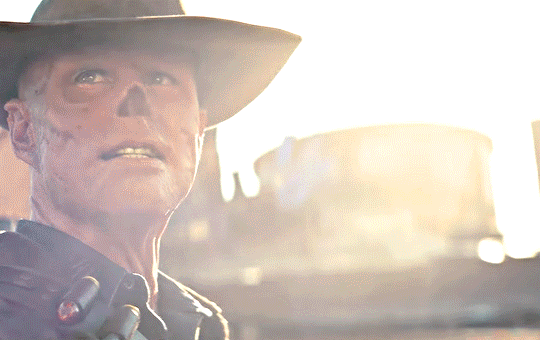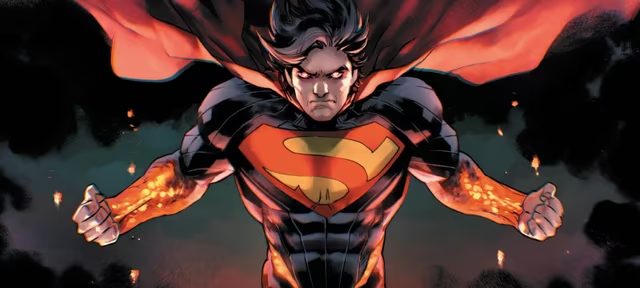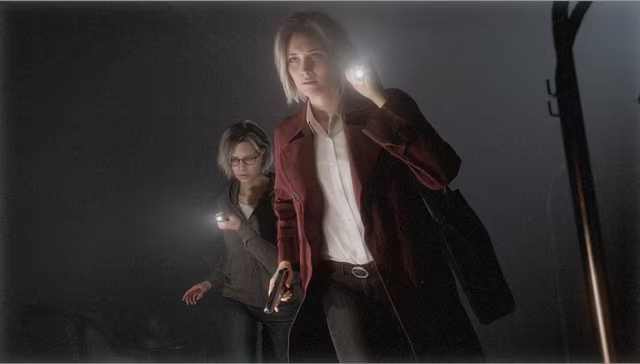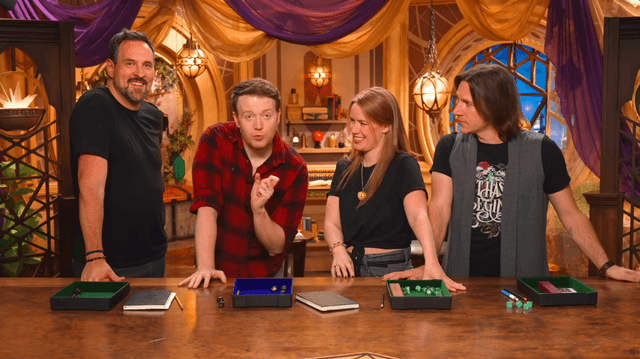If you click on a link and make a purchase we may receive a small commission. Read our editorial policy.
Inside the vault of the live-action Fallout show with the showrunners
Fallout's showrunners talk about the adaptation, the continuity, and the future of Amazon Prime Video's next big show

With 2024’s The Last of Us, HBO served up the first critically acclaimed, video game-inspired TV series. Now, Amazon MGM Studios is hoping to emulate HBO’s Last of Us success with a post-apocalyptic video game adaptation of its own: Fallout.
Fallout – like the games that inspired it – is set in the Wasteland, the irradiated hellscape that was once the USA. It’s a hyper-violent, darkly funny environment that viewers will experience from the wildly different perspectives of Fallout’s three lead characters: Vault Dweller Lucy (Ella Purnell), Brotherhood of Steel squire Maximus (Aaron Moten), and the Ghoul (Walton Goggins).
Popverse recently caught up with Fallout’s showrunners Geneva Robertson-Dworet and Graham Wagner to chat about expanding on existing Fallout canon, the possibility of overlap between the show and future games, and more.
Note: This interview has been edited for clarity.

Popverse: The Fallout video games feature user-created (and guided) Vault-Dweller protagonists. How did this influence the development of the show's trio of original lead characters, Lucy, Maximus, and the Ghoul?
Geneva Robertson-Dworet: We certainly wanted to be faithful to the games. Obviously, so many of them follow a Vault-dweller out, and we wanted to be faithful to that. And it was also beneficial to us structurally, because it gave us a point-of-view character who was experiencing the Wasteland for the first time, who would have a lot of the questions that new members of the audience would have, who were non-gamers who were coming to the show for the first time.
But, of course, we also had thematic reasons for picking Lucy, a Vault-dweller, as one of our key point-of-view characters. Graham and I always want to be making fun of ourselves we hope, not other people, and we started talking about the show back in 2019, and obviously, early 2020 was the pandemic, and we turned into Vault-dwellers ourselves.
Society at the time was like, ‘The right thing for you to do is stay home. Don’t leave your house.’ But we really struggled with it, because we felt like ‘Oh, my gosh, we’re letting other people go do our grocery shopping for us – they’re taking the risk for us, and we’re just these privileged little jerks who get to stay in a bunker.’ So, we really related to Lucy at that point in our lives.
As I understand it, the Fallout show takes place in the same continuity as the games. When was this decided, and how did it color your approach to building on the existing canon – knowing when to use it, and when to create your own?
Graham Wagner: It was the assumption that we would do that, between Geneva and I, from the jump. Simply because that’s been the shape of every Fallout instalment, going back to ’97. And they all worked, so why would we reinvent the wheel? [Laughs] Like, there was no retelling; Fallout 4 was not a retelling of Fallout 2, or what have you. So, we just thought, ‘Let’s do what works, and just try from there.’
Luckily, everyone agreed. And the reality of trying to adapt a [role-playing game], where everyone’s experience of playing the game is wildly different – it felt like we’d pull our brains out trying to accomplish that. So, we just thought [we’d] build a whole new space on top of the amazing work that’s been done over the years in the Fallout world.
As a followup, since the Fallout show is in continuity with the games – will future games be in continuity with the TV show? Could we see characters from the show cross over to the games?
Wagner: Well, we’re already seeing a little, pop-ups here and there in Fallout ’76, which is a live, sort of a living thing, that can grow and change as we go. Every time something like that happens, we’re tickled pink. But we’re not in a spot of telling [Bethesda Game Studios director and Fallout executive producer] Todd Howard what to do. [Laughs]
Was there anything from the Fallout games that didn't make the cut for Season 1 that you really wanted in there? And if so, will it show up in Season 2?
Robertson-Dworet: Oh, gosh! So much! I mean, the joy – but also the frustration – of working on an adaptation of 25 years of amazing video games is there’s just too much great stuff. So, it becomes a question of what you can put into an eight-hour story when a game is thousands of hours of story gameplay. Obviously, it is reduced, and Graham and I had lot of discussions early on about which fan-favorite things did we want to feature first, that are the most popular aspects of Fallout, versus also making sure that we were doing deep cuts.
Because we didn’t want to make it seem that this was adapted by a couple of idiots who just read the Wikipedia page for 60 seconds and were like, ‘Oh, well Fallout is Nuka Cola and Death Claws and that’s it!’ We wanted to be sure to bring fans the deeper cuts, reward fans who know, like, ‘Oh! Oh! This isn’t the first thing you see when you play a Fallout game.” We don’t have a guaranteed second season yet, but we’re very hopeful and we would absolutely love to get to bring more of the mythology to the screen.
We have our own plans for [Fallout Season 2], if we’re lucky enough to do so.
Get ready to get out of your Vault and into the Fallout world - with our help, of course. Here is a guide to the Fallout timeline, how to play and watch all of Fallout, details on the Fallout cast, how the Fallout cast & crew really get the harsh humor we're looking for, as well as a Q&A with Fallout showrunners Geneva Robertson-Dworet and Graham Wagner.
Follow Popverse for upcoming event coverage and news
Find out how we conduct our review by reading our review policy
Let Popverse be your tour guide through the wilderness of pop culture
Sign in and let us help you find your new favorite thing.
















Comments
Want to join the discussion? Please activate your account first.
Visit Reedpop ID if you need to resend the confirmation email.